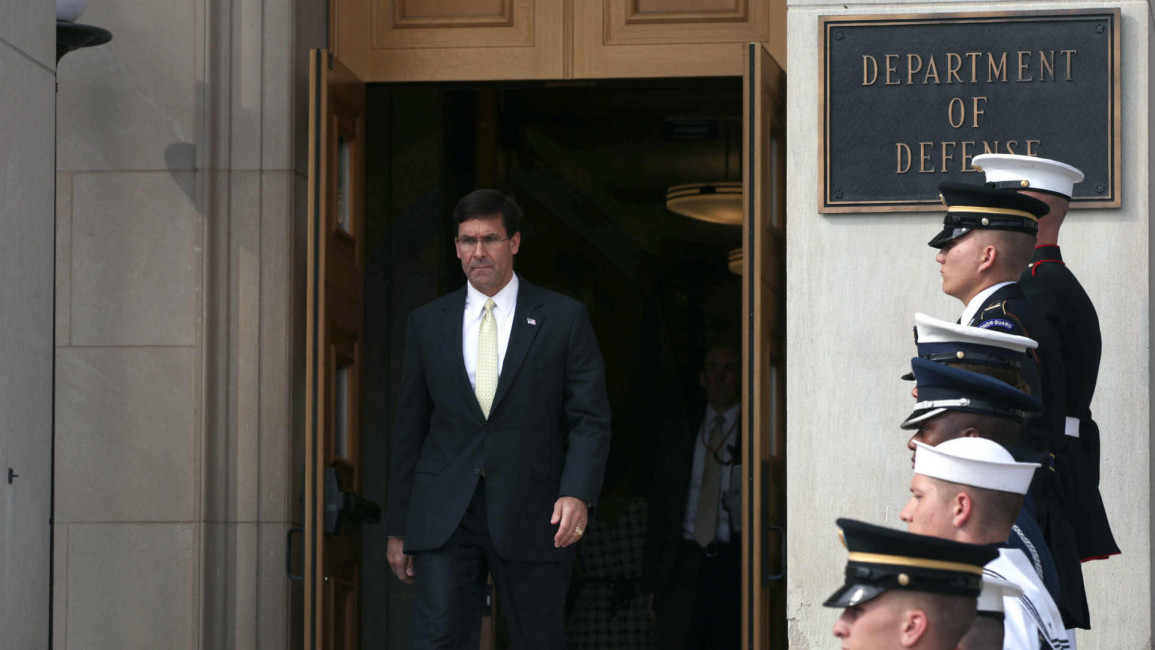US defence chief visits Iraq to discuss Syria withdrawal
Esper was due to meet his Iraqi counterpart Najah al-Shammari to address concerns among some in the government that the troops might stay in Iraq.
Iraq's high command said Tuesday that "no authorisation has been given for these troops to remain on Iraqi soil".
"All of the US troops who have withdrawn from Syria have obtained authorisation to enter Iraqi Kurdistan in order to leave Iraq."
On the previous leg of his tour in Saudi Arabia on Tuesday, Esper said the redeploying troops would stay in Iraq "temporarily" before returning to the United States.
He said the US forces were pulling out of Syria in phases, and had now moved from the "immediate zone of attack" to a northeastern corridor out of the country.
"Then we'll have another phase that will draw all the forces out. We will temporarily position in Iraq before bringing the troops home. They will be coming home," Esper said in an interview with CNN.
The US withdrawal from Syria has been met with backlash from many who perceive it as having green-lighted the Turkish incursion into Syria’s border areas and by doing so, abandoning Kurdish-led forces that the US had previously supported in the fight against the Islamic State group.
The Kurds have in turn been force to strike a deal with the Syrian regime, handing back swathes of territory it captured from IS.
The United States currently has 5,200 troops in Iraq, part of a US-led international coalition against IS.
Their presence at several bases in Iraq has been the subject of debate, with pro-Iranian Shia militias and politicians making frequent demands for their withdrawal.
Meanwhile the US is deploying some 3,000 new US troops to Saudi Arabia after Riyadh asked for reinforcements following a mid-September drone and missile attack on Saudi oil plants, which Washington blames on Iran.
Esper said earlier this month that since May the United States has increased its 70,000-strong presence in the Middle East by 14,000 personnel, most of those deployed to the Gulf region in response to Iran's actions.



